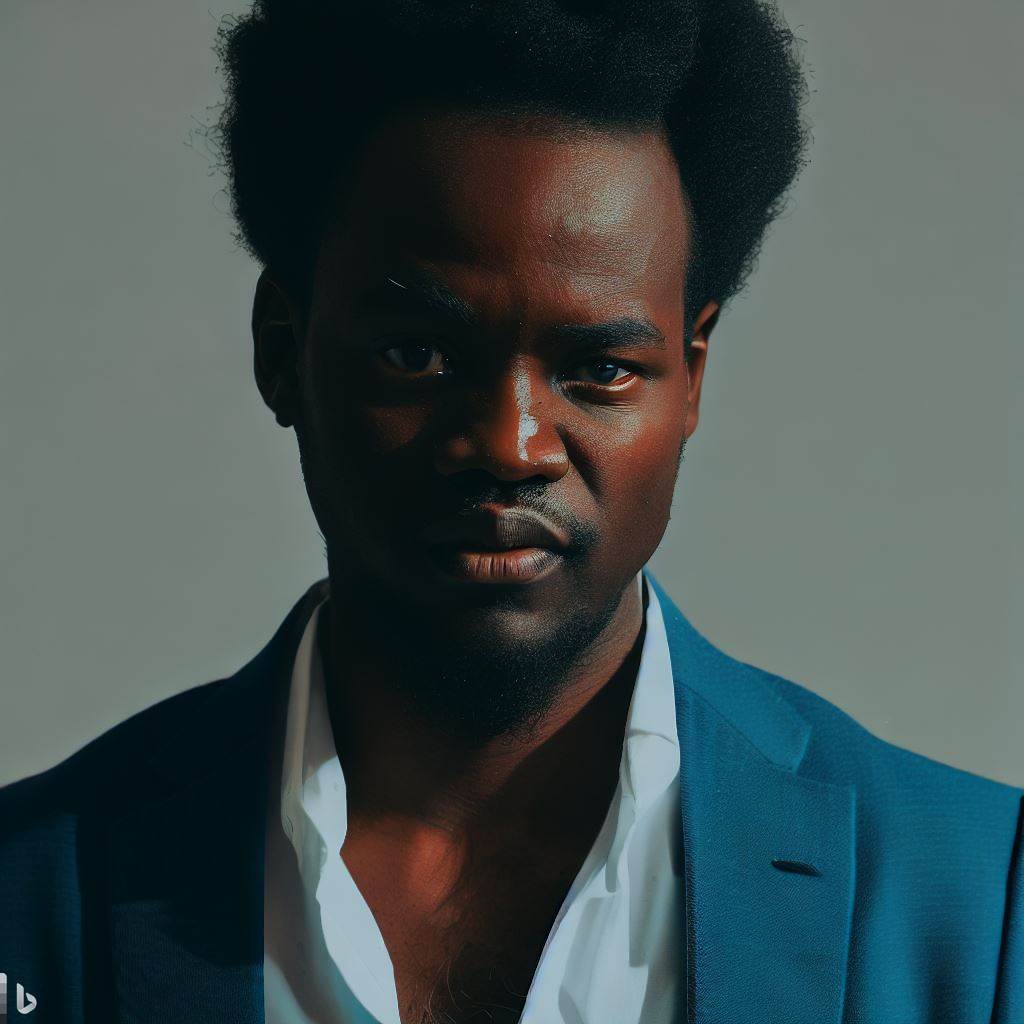Introduction
A. Income Potential for DJs in Nigeria
This section explores the income potential that DJs can tap into within Nigeria’s dynamic music industry.
B. Importance of Understanding DJ Income Potential
Understanding DJ income potential is crucial for aspiring and existing DJs to plan their careers effectively and achieve financial stability.
C. Overview of Blog Content
In this post, we’ll dissect the various income streams available to Nigerian DJs, from gigs and events to online platforms.
We’ll also discuss strategies for maximizing earnings and building a sustainable DJ career.
Overview of the DJ industry in Nigeria
A. Growth and popularity of DJ culture
- The DJ industry in Nigeria has witnessed significant growth in recent years.
- DJing has become increasingly popular, thanks to the rise of music festivals and events.
- The demand for skilled DJs has escalated as more people embrace the nightlife scene.
- Social media platforms like Instagram and SoundCloud have also played a significant role in promoting DJs.
B. Various types of DJs in Nigeria
- Club DJs are among the most common type of DJs in Nigeria. They perform in nightclubs, entertaining the crowd and creating a lively atmosphere.
- Radio DJs are responsible for selecting and playing music on radio stations. They often have specific time slots and cater to a wide range of listeners.
- Mobile DJs offer their services for private events, such as weddings, birthday parties, and corporate gatherings. They bring their equipment and set up a mobile DJ booth at the venue.
- Celebrity DJs are well-known personalities who have gained fame through their DJing career. They often perform at high-profile events and have a large following.
C. Influences and trends in the DJ industry
- The Nigerian music industry has a significant influence on the DJ industry. DJs often play popular Nigerian songs and contribute to the success of local artists.
- International collaborations and exposure have also impacted the DJ industry in Nigeria. DJs now have access to a global audience and can experiment with different genres and styles.
- Technology has revolutionized the DJing scene, with the emergence of DJ software and controllers. DJs can now create unique mixes and remixes using digital tools.
- The rise of Afrobeat and other Nigerian music genres has had a profound effect on DJs. They incorporate these sounds into their DJ sets, attracting both local and international fans.
In general, the DJ industry in Nigeria has experienced immense growth and popularity in recent years.
The rise of DJ culture, the presence of various types of DJs, and the influence of Nigerian music and international trends have shaped the industry.
DJs in Nigeria have a promising income potential, especially with the increasing demand for their services.
As the industry continues to evolve, DJs must stay updated with the latest technology and trends to thrive in this competitive field.
Read: Scriptwriting Schools: Best Training in Nigeria
Factors Affecting the Income Potential for DJs in Nigeria
A. Demand for DJs in different sectors (clubs, weddings, events, etc.)
- The demand for DJs varies across different sectors such as clubs, weddings, and events.
- In clubs, DJs are in high demand as they play an essential role in creating an enjoyable atmosphere.
- Weddings also require DJs to set the mood and entertain the guests with their music.
- Events like corporate parties and product launches often hire DJs to entertain the attendees.
- DJ services are also sought after in social gatherings, concerts, and festivals.
- The diversity in demand across various sectors allows DJs to explore multiple income opportunities.
B. Competition among DJs in the market
- The DJ market in Nigeria is increasingly competitive, with numerous individuals pursuing a career in this field.
- This high level of competition has led DJs to differentiate themselves by offering unique services and music styles.
- To stand out, DJs often build their brands and promote themselves through social media and online platforms.
- Competition encourages DJs to continuously improve their skills to maintain an edge over their peers.
- However, the intense competition could also affect the income potential for DJs, requiring them to constantly outperform rivals.
C. Geographic location and client preferences
- The geographic location plays a significant role in determining the income potential for DJs in Nigeria.
- In major cities like Lagos, Abuja, and Port Harcourt, the demand for DJs is higher due to a larger population and more events.
- Client preferences also vary based on geographical locations, with different regions having distinct music tastes.
- DJs who can cater to the specific preferences of clients in their respective locations have a higher income potential.
- However, DJs who can adapt to different music genres and styles have an advantage in catering to diverse client preferences.
D. Reputation and experience of the DJ
- The reputation and experience of a DJ play a crucial role in determining their income potential.
- DJs with a well-established reputation and extensive experience are often in high demand and can command higher fees.
- Positive reviews, endorsements, and testimonials from clients contribute to building a DJ’s reputation.
- Past performances at notable events or venues also enhance a DJ’s credibility and make them more attractive to potential clients.
- Newer DJs or those with limited experience may need to initially charge lower fees to build their reputation and gain exposure.
In a nutshell, several factors affect the income potential for DJs in Nigeria. The demand for DJs differs across sectors, with clubs, weddings, and events being prominent areas.
Competition in the market is intense, pushing DJs to stand out and continuously improve their skills.
Geographic location and client preferences also play a significant role, with DJs adapting to specific music tastes.
Moreover, the reputation and experience of a DJ impact their earning potential, influencing their ability to command higher fees.
By considering and navigating these factors, DJs can maximize their income potential and thrive in the Nigerian music industry.
Read: Nigeria’s Top Music Festivals and the Role of DJs
Income Sources for DJs in Nigeria
A. Performance fees and rates
- DJs in Nigeria can earn a significant income from performance fees at various events.
- The fees can range from a few thousand naira to millions, depending on the DJ’s popularity and experience.
- Corporate events, weddings, and parties are common venues where DJs perform and charge their fees.
- Established DJs can negotiate higher rates and are often in demand for their skills.
B. Residency gigs and long-term contracts
- Residency gigs at nightclubs and bars provide DJs with a stable income source.
- These gigs typically involve regular performances on specific days of the week or month.
- DJs on long-term contracts with popular venues enjoy financial stability and a regular fan base.
- Such contracts ensure a consistent income stream, giving DJs a sense of security.
C. Corporate events and brand collaborations
- DJs in Nigeria often collaborate with brands and companies to create memorable experiences.
- Corporate events, product launches, and brand parties are opportunities for DJs to showcase their talent.
- Brands are willing to pay well for DJ performances that align with their image and target audience.
- These collaborations not only provide financial rewards but also help DJs expand their network and reach.
D. Royalties from original music production
- DJs who produce and release their original music can earn royalties from their work.
- Original music includes remixes, mashups, and original compositions created by DJs.
- Platforms like streaming services and online stores provide opportunities for DJs to monetize their music.
- Every time a DJ’s original track is streamed or purchased, they receive royalties, adding to their income.
To sum it up, DJs in Nigeria have multiple income sources that contribute to their overall earnings.
Performance fees and rates at events, such as weddings and parties, can vary depending on their experience and popularity.
Residency gigs and long-term contracts at nightclubs and bars provide stability and regular income.
Collaboration with brands for corporate events and parties not only brings financial rewards but also helps DJs expand their network.
Additionally, royalties from original music production further contribute to their income. Overall, the income potential for DJs in Nigeria is lucrative, especially for established and talented individuals.
Read: Income and Opportunities for Scriptwriters in Nigeria

Determining Factors for DJ Fees in Nigeria
In Nigeria, several factors influence the fees charged by DJs.
These factors play a significant role in determining the income potential and financial success of DJs in the country.
A. Level of expertise and skillset
- The DJ’s level of expertise and skillset is a crucial factor in determining their fees.
- DJs who have gained significant experience and mastered their craft can command higher fees.
- Clients value DJs with exceptional mixing skills, the ability to read the crowd, and create memorable experiences.
- As DJs enhance their skills and gain recognition, their income potential increases.
B. Equipment and production value
- The type and quality of equipment used by a DJ greatly impact their fees.
- DJs who invest in state-of-the-art sound systems, lighting, and visual effects can charge higher fees.
- Clients are willing to pay more for DJs who can create a visually captivating and immersive experience.
- A DJ’s ability to provide a high-quality production value contributes to their income potential.
C. Personal brand and reputation
- A DJ’s personal brand and reputation significantly influence their fees in Nigeria.
- DJs who have established a strong brand identity and have a positive reputation can command higher fees.
- Clients are willing to pay more for DJs who are known for their professionalism, reliability, and ability to entertain.
- Positive client testimonials and a strong online presence contribute to a DJ’s income potential.
D. Working hours and exclusivity
- The working hours and exclusivity of a DJ also determine their fees.
- DJs who work during peak hours, such as weekends and holidays, can charge higher fees.
- Clients are willing to pay more for DJs who can accommodate late-night events and provide exclusive services.
- DJs who secure exclusive contracts with high-profile clients can demand premium fees.
In summary, the income potential for DJs in Nigeria is influenced by various factors.
A DJ’s level of expertise, equipment and production value, personal brand and reputation, as well as their working hours and exclusivity, all contribute to their fees.
By continuously improving their skills, investing in quality equipment, building a strong brand, and securing exclusive contracts, DJs can maximize their income potential and achieve financial success in Nigeria’s competitive music industry.
Read: Prominent Nigerian Scriptwriters and Their Stories
Examples of Successful DJs in Nigeria and Their Incomes
A. Case study 1: DJ Jimmy Jatt and his journey to success
- DJ Jimmy Jatt is one of the most prominent DJs in Nigeria, known for his incredible skills and talent in the music industry.
- He started his career in the late 80s and has since become a household name in the Nigerian music scene.
- DJ Jimmy Jatt’s income primarily comes from various sources, including gigs, endorsements, and music production.
- As one of the pioneers of DJing in Nigeria, he has been able to charge a premium for his services, earning him a significant amount per event.
- His popularity and influence among music lovers have also attracted lucrative endorsement deals with major brands.
- These partnerships have not only boosted his income but also solidified his status as a successful DJ in Nigeria.
- Moreover, DJ Jimmy Jatt has ventured into music production, releasing hit tracks and albums under his name. This diversification of income streams has further contributed to his overall earnings.
B. Case study 2: DJ Spinall and his diverse income streams
- DJ Spinall, also known as “The Cap,” is another successful DJ in Nigeria who has made a name for himself both locally and internationally.
- He is known for his unique sound and ability to connect with audiences.
- In addition to his DJing career, DJ Spinall has explored various income streams, including brand endorsements, record label ownership, and music production.
- These additional revenue sources have significantly boosted his income.
- His collaborations with local and international artists have not only elevated his profile but have also increased his earning potential.
- Through these partnerships, DJ Spinall has been able to negotiate higher performance fees and secure more endorsement deals.
- DJ Spinall’s identity as a successful DJ and entrepreneur has put him in a position to launch and run his own record label.
- This venture has not only added to his income but has also given him creative control over his music and the ability to nurture up-and-coming talents.
C. Overview of other well-known DJs and their average earnings
Aside from the aforementioned case studies, several other well-known DJs in Nigeria have achieved financial success through their careers:
- DJ Neptune: Known for his versatility and hit collaborations, DJ Neptune’s average earnings range from N5 million to N10 million per year.
- DJ Exclusive: With a reputation for his energetic performances, DJ Exclusive commands an average fee of N3 million to N7 million per event.
- DJ Cuppy: As the daughter of billionaire Femi Otedola, DJ Cuppy has access to vast financial resources. She earns around N4 million to N6 million per performance.
- DJ Big N: As Mavin Records’ official DJ, DJ Big N has been able to leverage his association with the record label to earn an average of N2 million to N4 million annually.
These examples highlight the earning potential of successful DJs in Nigeria. However, it’s important to note that income can vary based on factors such as experience, popularity, and market demand.
With the Nigerian music scene constantly evolving, DJs have ample opportunities to increase their earnings through various income streams.
Read: How to Start a DJ Career in Nigeria: A Comprehensive Guide
Challenges and Opportunities for DJs in Nigeria
A. Limitations in the industry
- Lack of appreciation for DJing as a legitimate profession.
- Low level of investment in professional DJ equipment.
- Competition from unskilled DJs offering services at a lower cost.
- Inadequate recognition and respect from event organizers and the general public.
- Difficulty in securing consistent gigs due to the saturated market.
B. Emerging trends and possibilities for growth
- The rise of the entertainment industry in Nigeria creates more opportunities for DJs.
- Increased demand for DJs in weddings, corporate events, and music festivals.
- Expansion of the Nigerian music scene attracting international DJs to collaborate.
- Growing popularity of DJs on social media platforms, enabling wider reach and exposure.
- Integration of technology into DJing, allowing for more creative performances.
C. Strategies for maximizing income potential as a DJ in Nigeria
- Invest in high-quality equipment to enhance performance and stand out from competitors.
- Build a strong personal brand through social media, website, and networking.
- Collaborate with other industry professionals and artists to expand connections.
- Diversify income streams by offering additional services like event planning or music production.
- Continuously improve DJing skills through practice, workshops, and online courses.
- Seek higher-paying gigs by targeting niche markets or specialized events.
- Join professional DJ associations to gain credibility and access exclusive opportunities.
- Offer unique experiences or themes to differentiate yourself and attract more clients.
- Provide excellent customer service and go above and beyond to exceed clients’ expectations.
- Maintain a strong online presence by regularly sharing mixes, videos, and engaging with followers.
All in all, being a DJ in Nigeria presents both challenges and opportunities.
The industry still faces limitations in terms of recognition and investment, but emerging trends and the growing entertainment industry offer possibilities for growth.
By implementing effective strategies such as investing in quality equipment, building a personal brand, and diversifying income streams, DJs can maximize their income potential and thrive in this competitive market.
It is essential for DJs to stay proactive, continuously improve their skills, and adapt to the evolving industry to succeed in Nigeria’s dynamic DJing landscape.
Read: How to Navigate the Nigerian Scriptwriting Industry
See Related Content: Influential Cinematography Styles in the Nigerian Film Industry
Conclusion
A. Recap of Key Points
In this blog section, we’ve explored the income potential for DJs in Nigeria, emphasizing the need for diversification and marketing skills.
B. Importance of Financial Understanding
Understanding the financial aspects of DJing in Nigeria is crucial for long-term success, enabling financial stability and growth.
C. Encouragement for Aspiring DJs
To all aspiring DJs, pursue your passion while being financially savvy.
By following these insights, you can thrive in the Nigerian DJ scene.




